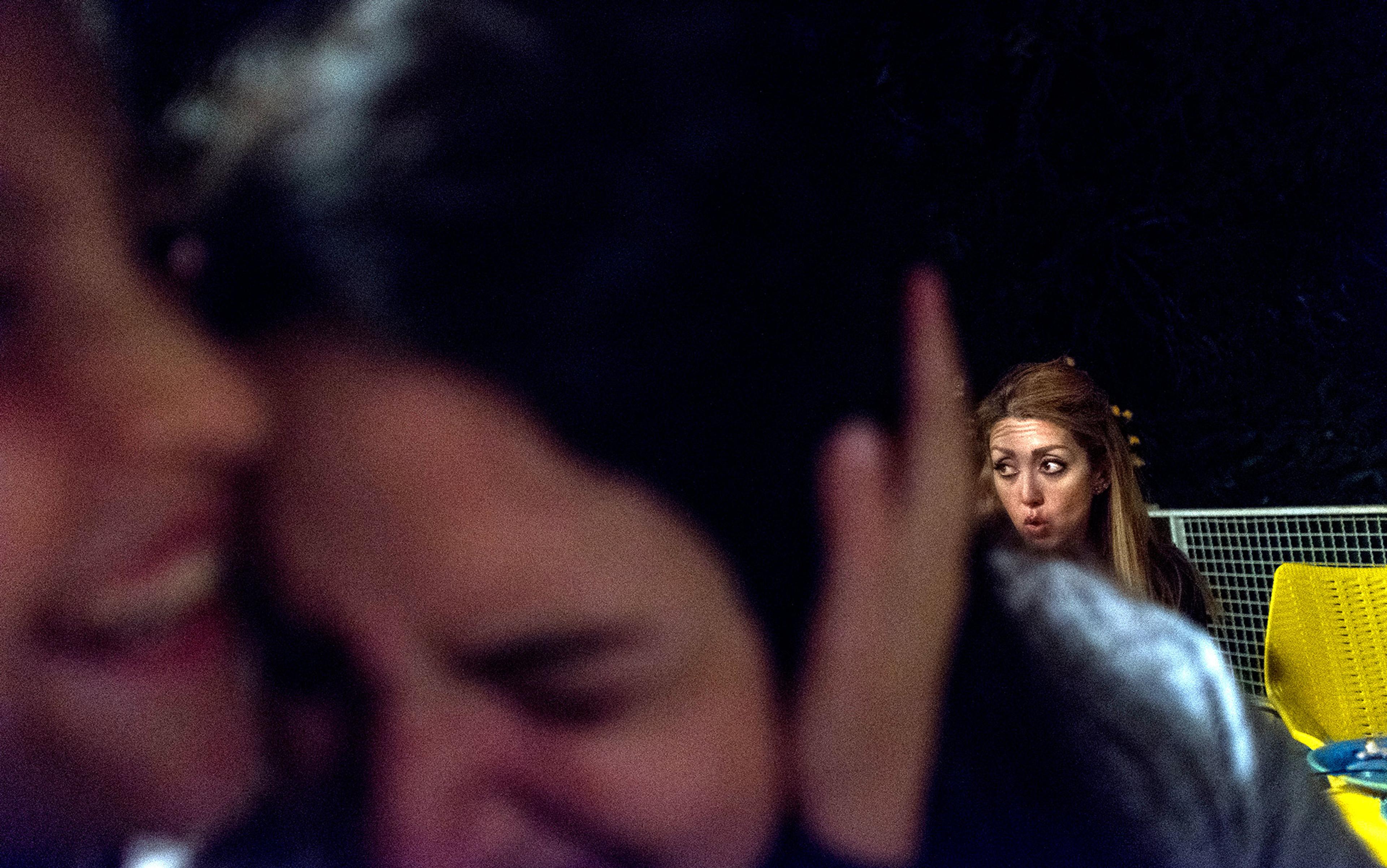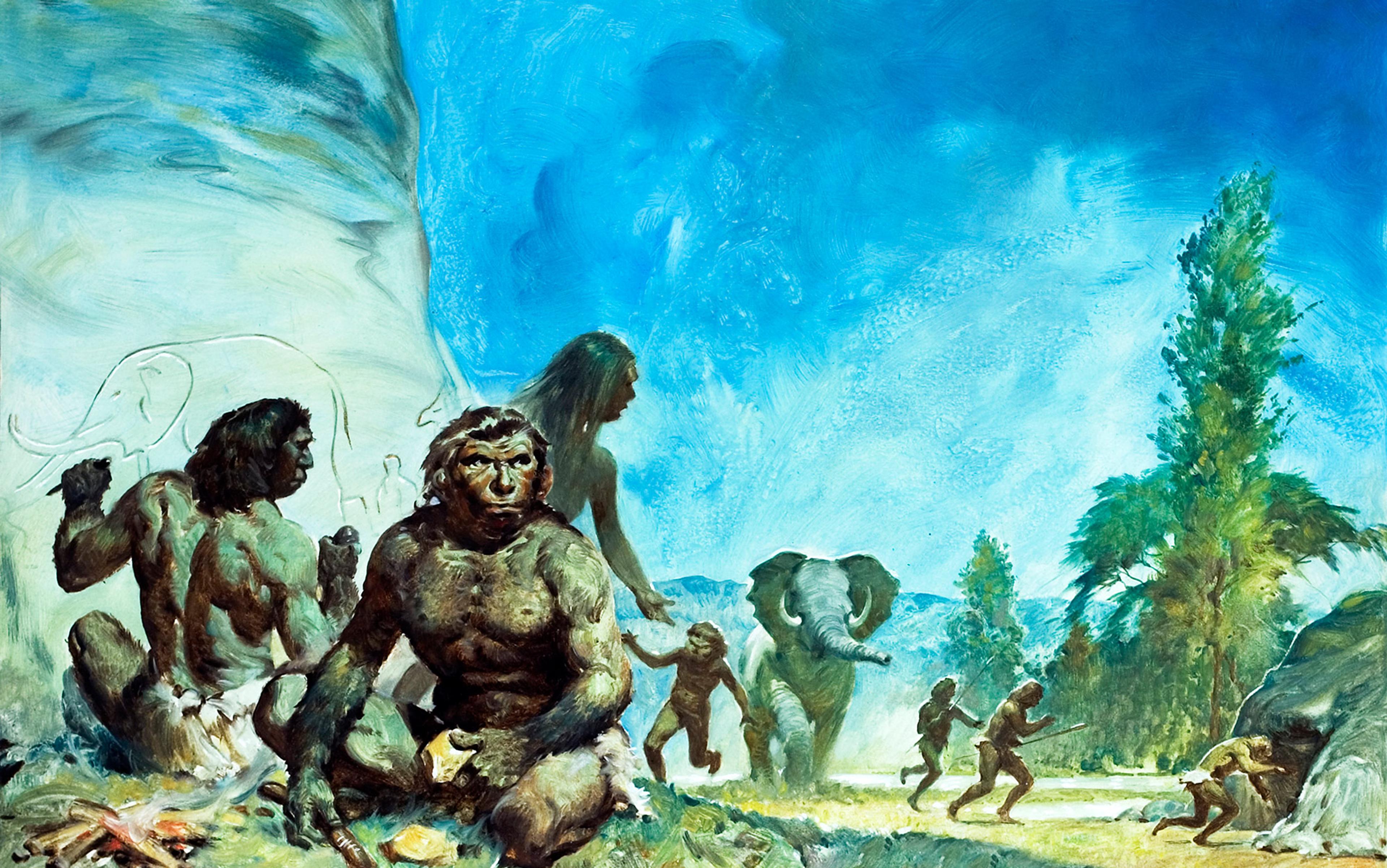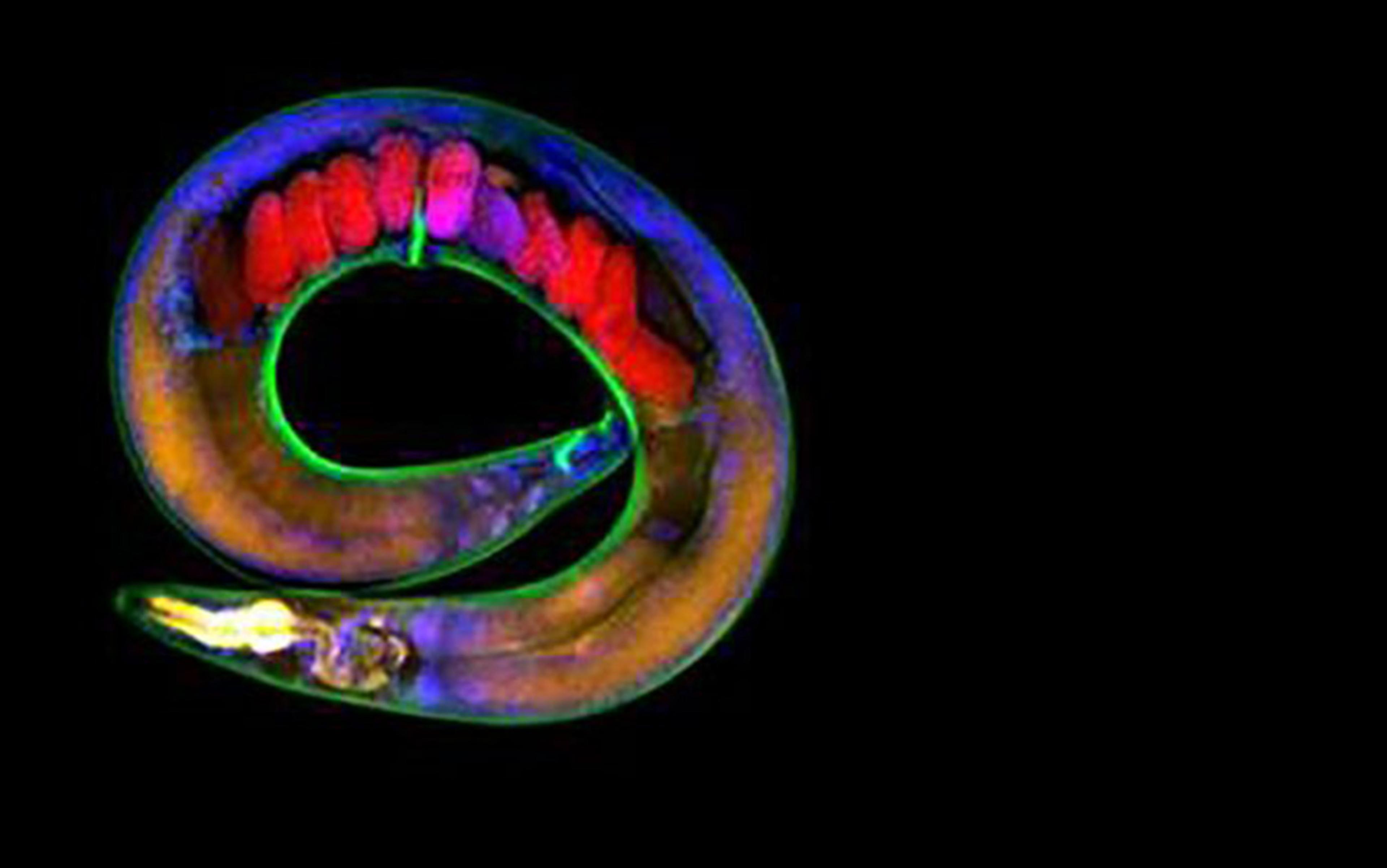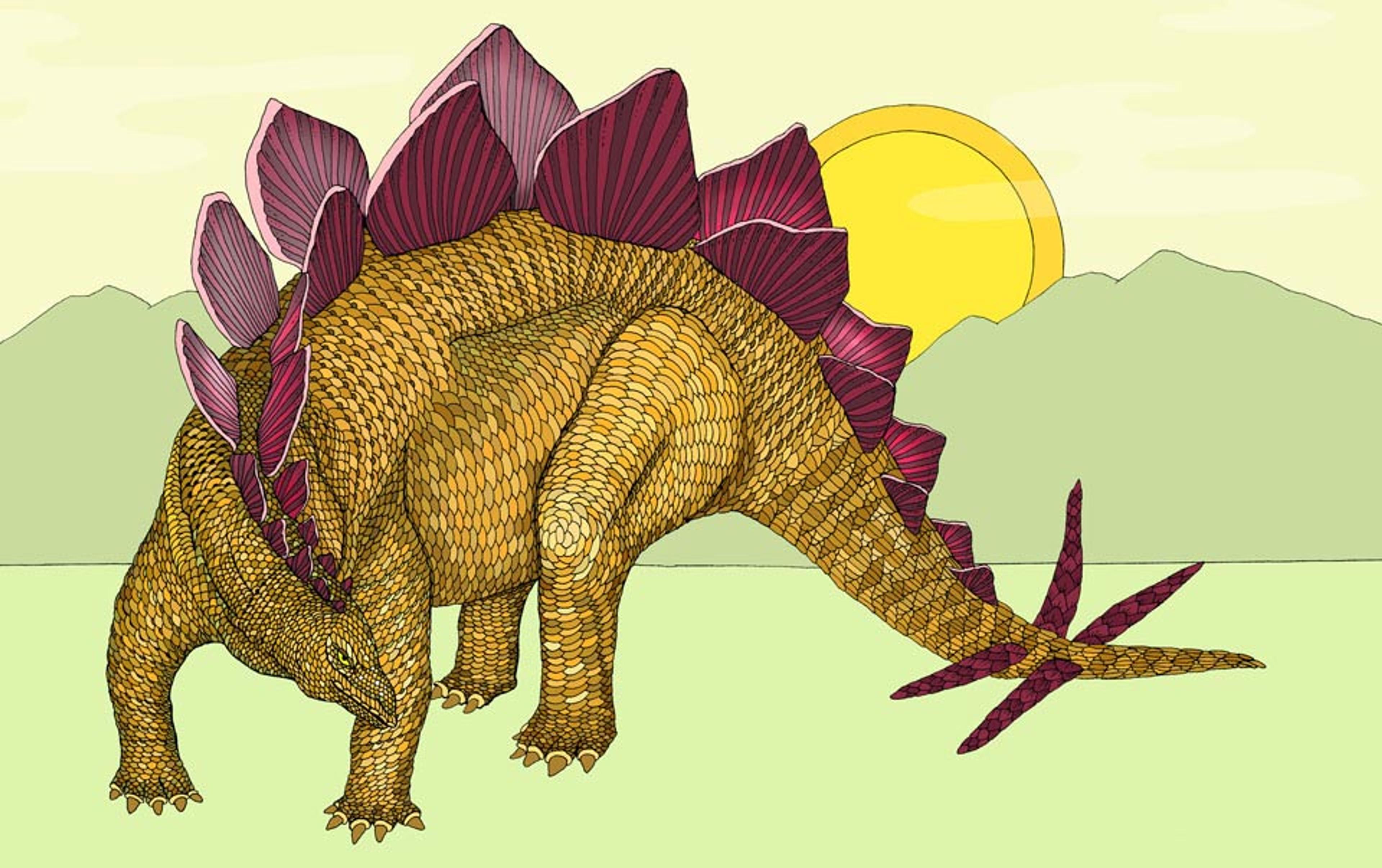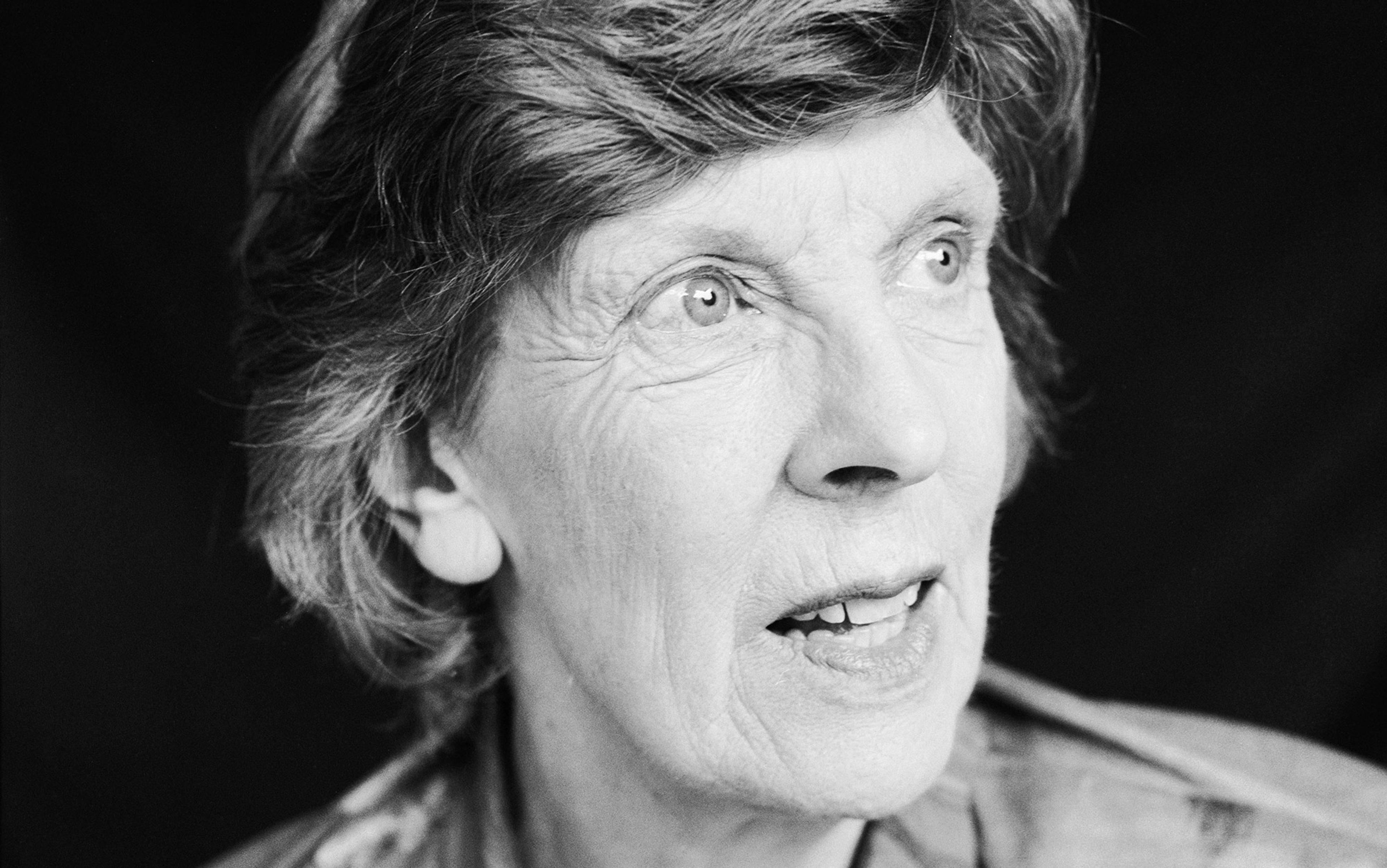Nature, Mr Allnut, is what we were put in the world to rise above.
Katherine Hepburn to Humphrey Bogart in African Queen (1951)
Questions about what matters, and why, and what exists in the world, are quintessentially philosophical. The answers to many of these questions are informed by how we conceive of ourselves. How has what is often described as the ‘Copernican revolution’ effected by Charles Darwin changed our self-conception? One particularly surprising feature of evolutionary biology is that it lends significant support to existentialism.
To make the journey from evolutionary biology to existentialism, let’s start with one of the oldest and most profound of philosophical questions: how do we decide what is right or wrong, good or bad? Many philosophers have warned that no facts about nature can ever provide grounds for claims about values. In A Treatise of Human Nature (1739-40), David Hume made a compelling argument that an unbridgeable gap separates fact from value, ‘is’ from ‘ought’. To attempt to bridge that gap is to commit the ‘naturalistic fallacy’: no argument from factual premises can ever secure a conclusion about what is valuable, or about what to do.
In Principia Ethica (1903), the philosopher G E Moore adduced what he called an ‘open question argument’ for a similar constraint on any discourse about value. He claimed that any attempt to define ‘good’ in naturalistic terms – such as pleasure, or ‘utility’, or for that matter a divine commandment – must fail, because it always remains an ‘open question’ whether pleasure, or utility, or that particular divine commandment, really is good. If such a definition were sound, like the definition of a triangle as a three-angled plane figure, then the question would not make sense. ‘Is a triangle really a three-sided figure?’ would merely signal a failure to understand the definition.
Moore’s formulation has given rise to an enormous amount of debate. It is reasonable to object that it begs the question: for if one of those definitions of ‘good’ is correct, then the question is no longer open. But it must be admitted that no definition of ‘good’ in terms of some natural properties is very plausible. Hume’s original ‘is-ought’ gap still gapes.
In practice, of course, it would be hopeless to decide on what is best without reference to facts. In medicine as in public policy, ‘evidence-based’ decisions are the gold standard to which even politicians sometimes aspire. But the evidence we attend to is relevant only because certain goals are regarded as unquestionable: health, happiness, life. These values are presupposed, even if they seem too obvious to be articulated, by any practical or moral argument. If money buys happiness, then strive to make money. But only if happiness is the sort of thing you ought to pursue. If food sustains life, then eat! But only if you value life.
So where can we find the justification of general premises about value? If going from fact to values is a fallacy, then we can’t ground value judgments in facts. But if not facts, then what? Non-facts? ‘Alternative facts’, perhaps? One class of truths that are sometimes distinguished from ordinary facts of experience is the class of logical facts. And some philosophers, notably Immanuel Kant in the 18th century, thought that we could somehow extract moral principles from pure reason. That would seem to reduce immorality to a mere logical or mathematical mistake. And, on the face of it, that seems absurd, despite continuing efforts by Kant’s followers to convince us that it seems absurd only because we are not smart enough to get it. This has long been a ploy of philosophers, just as it was among theologians: insist that, if you disagree with their dogma, you must be either stupid or wicked. I prefer to persist in not getting it.
So must we admit that all claims about value, goodness or rightness are arbitrary? No. But if we are to resist that conclusion, we must reconsider the fact-value gap. Perhaps we can think of some facts as enjoying a special status, enabling them to provide plausible though not logically compelling reasons.
One proposal in that vein might be to take our wants and desires at face value. To want something is implicitly to view it as valuable. Our desire is a fact about us, but it seems to point to a value. We care about what we desire, and by definition what we care about is what we value. John Stuart Mill adopted this strategy when he declared in Utilitarianism (1863) that ‘the sole evidence it is possible to produce that anything is desirable is that people do actually desire it’. For that, he has been convicted of committing the naturalistic fallacy, by equivocating on the meaning of ‘desirable’. Does it mean ‘worthy of being desired’ or does it mean ‘capable of being desired’? The fact that something is desired trivially proves that it can be; but it fails to establish that it should be. For not all that we desire is worthy of desire.
Nevertheless, even if no factual evidence can ever count as proof of a claim about value, some claims sound more reasonable than others. Being desired is better than nothing as support for regarding something as desirable. But how can we tell which of our desires we should endorse?
One time-honoured approach appeals to the idea that our desires are worthy, providing that they stem from our authentic human nature. Daoists, Epicureans and Aristotelians, among other purveyors of ancient wisdom, have all urged us to follow nature. But what could that mean? As the same J S Mill pointed out in his essay ‘Nature’ (1874), there are two ways of understanding the word:
In the first meaning, Nature is a collective name for everything which is. In the second, it is a name for everything that is of itself, without human intervention … while human action cannot help conforming to nature in one meaning of the term, the very aim and object of action is to alter and improve nature in the other meaning.
To enjoin anyone to follow nature is otiose on the first meaning, and self-defeating in the second. So what could be meant by that ancient piece of wisdom?
Thomas Aquinas, borrowing from Aristotle, devised an ingenious two-step strategy for answering that question. Step one: look at what happens ‘always or for the most part’ in nature to determine its laws. That investigation will reveal the natural and proper ‘functions’ of organs and activities: those that Nature, so to speak, ‘intended’. (If Nature is just another name for God, then the talk of ‘intent’ can even be taken literally.) Step two: use the resulting observations to determine what we ought to do – and especially what we ought not to do – according to whether it was found to be ‘natural’ or ‘unnatural’ in step one.
Unfortunately, Aquinas’ strategy, though still holding sway in the Vatican as the doctrine of natural law, is a slippery example of ‘bait-and-switch’. In step one, the word ‘law’ seems to be used as in science, to refer to descriptive generalisations about what actually happens. In step two, however, the word’s meaning is closer to that of ‘legislation’. Laws of this second sort are promulgated and often broken. Laws of the first sort cannot be broken, even if they are stochastic, specifying mere probabilities. Laws of one kind are about the facts of nature; laws of the other kind are about how we should change those facts.
Everything that is alive is part of nature. Some of it is good for us, some of it is bad for us
Despite that flaw, natural law theory was plausible enough before Darwin. Even now, we are likely to judge that nature sometimes makes ‘mistakes’. For Aristotle as for Aquinas, organs that failed to perform their normal functions or, by extension, organisms whose difference made them unable to thrive were freaks of nature, ‘monsters’, giving rise to a whole branch of study called teratology. That word is still used to designate the study of congenital or developmental abnormalities. But in light of Darwin’s discovery, we can see that it makes no literal sense.
One way to describe what is revolutionary about Darwinism is that it inverts the status of the normal and the abnormal, or more precisely of typical and deviant specimens. On the assumption that species are stable and unchanging, unusual specimens are ‘abnormal’ or even monstrous: their deviance demands an explanation. But given the facts of evolution, nature is a continuum of variable individual things that resemble one another to a greater or lesser extent, depending mostly on the degree to which their lineages are close in ancestry, but also resulting from the inherent variability of all living things. In that perspective, no actual fact is more natural than any other. What requires explanation is not that some individuals are different from typical specimens, but that living things cluster around what seem to be typical specimens.
If no abnormalities had occurred in the past 4 billion years, you and I would still be bacteria. Every mutation or other rearrangement of our DNA that brought one of our ancestors closer to being human, when it first occurred, must necessarily have been unique, and therefore abnormal. We are the direct descendants of millions of freaks. In light of that thought, we should perhaps regard our more eccentric acquaintances with more respect. Not every freak is an improvement, but every improvement must first have been featured in a freak.
In light of evolution, then, natural law theory is bankrupt. It can give us no useful guidance as to what life to favour or what goals to pursue. Indeed, although many conservationists and environmentalists believe themselves to be motivated by the inherent value of nature, most are probably self-deceived. Of endangered species, for example, what they prize is not really that they are natural, but some other virtues: that they are aesthetically appealing, like eagles, or potentially useful, like the flora of rainforests. For who has ever joined a demonstration with a placard deploring the near-extinction of the smallpox virus? Everything that is alive is part of nature. Some of it is good for us, some of it is bad for us. Nature’s purposes, if it has any, are not ours. The mere existence of a natural fact or organism tells us nothing about whether it is good.
Perhaps, though, the contemplation of the fact of evolution itself might offer some lessons on how we should live. In an increasingly secular society, many think of evolution as having taken over the role of providence. Surely natural selection, in ensuring the ‘survival of the fittest’, has brought us to a pinnacle of perfection. Or at least, since we are, to be sure, not quite perfect yet, the adaptive process of natural selection will ultimately make us so.
Unfortunately, this is wrong. What nature has contrived cannot be expected to be best for us, for at least three reasons. The first is that the process of adaptation takes time. And in the time it takes, things might have changed, so that just when natural selection has made us nicely adapted to one set of living conditions, these no longer apply. An obvious example here is junk foods. In an environment where salt, sugar, fat and protein required work to acquire, our ancestors developed a natural taste for them. That’s why junk food is the most likely to be enjoyed by any child, no matter what the culinary style of the prevailing culture. But in our current circumstances, a taste for junk food doesn’t look so healthy.
Much the same might be true of some of the emotional dispositions bequeathed to us by natural selection. If we follow some evolutionary psychologists in thinking that evolution has programmed us to value solidarity and authority, for example, we must recognise that those very same mechanisms promote xenophobia, racism and fascism. Some philosophers have made much of the fact that we appear to have genuinely altruistic motives: sometimes, human beings actually sacrifice themselves for complete strangers. If that is indeed a native human trait, so much the better. But it can’t be good because it’s natural. For selfishness and cruelty are no less natural. Again, naturalness can’t reasonably be why we value what we care about.
A second reason why evolution is not providence is that any given heritable trait is not simply either ‘adaptive’ or ‘maladaptive’ for the species. Some cases of fitness are frequency-dependent, which means that certain traits acquire a stable distribution in a population only if they are not universal. This is best illustrated by the fable of doves and hawks made famous by Richard Dawkins in The Selfish Gene (1976), but originally due to John Maynard Smith’s On Evolution (1972). Suppose that ‘doves’ never escalate a conflict into a fight, while ‘hawks’ always fight to the death if opposed. It is easy to see that in a population of doves, a hawk will prosper, and his kind proliferate. For doves will always concede any resource in a dispute, and hawks will have the advantage in every conflict. In a population of hawks, however, doves will have the advantage. For while they often lose a meal, by always retreating in the face of opposition, doves will survive every encounter and get a chance for another. But most encounters will pit hawk against hawk, giving each only a 50-50 chance of surviving. At some point, somewhere between all-hawk and all-dove populations, the proportion of hawks to doves will reach an equilibrium. From that point, more hawks will result in an advantage to doves, and hawks will do better if there are more doves.
In the real world, we might think of psychopaths as analogous to hawks. They do well in a world where most others will always yield rather than risk causing harm. But if they were to become more numerous, psychopaths would increasingly risk encountering other psychopaths, rather than the average sucker they are used to exploiting. The advantage will pass to the average cooperating type of individual. It has been estimated that psychopaths maintain their numbers at a steady 1 per cent of the population. Perhaps, at this stage of civilisation, that is the point of equilibrium. That would make being a psychopath as ‘natural’ as anything else, but it doesn’t mean we must approve of psychopaths.
Sex comes with so many disadvantages that it is something of a puzzle for evolutionary theory
The third reason we should not equate the natural with the good is the most important. Evolution is not about us. In repeating the well-worn phrase that is supposed to sum up natural selection, ‘survival of the fittest’, we seldom think to ask: the fittest what? It won’t do to think that the phrase refers to fitness in individuals such as you and me. Even the fittest individuals never survive at all. We all die. What does survive is best described as information, much of which is encoded in the genes. That remains true despite the fashionable preoccupation with ‘epigenetic’ or otherwise non-DNA-encoded factors. The point is that ‘the fittest’ refers to just whatever gets replicated in subsequent generations – and whatever that is, it isn’t us. Every human is radically new, and – at least until cloning becomes routine – none will ever recur.
Most humans have no interest in the propagation of their genes. Indeed, in most sexual encounters, people’s interest lies in frustrating the only goal we can plausibly ascribe to nature: namely the replication of genes. Some people do crave to have babies, but they seldom think of that in terms of gene replication. We have our own desires, and they have little or nothing to do with any ‘goal’ of nature.
I care about my own goals and desires; I don’t care about nature’s. That brings us back to Mill’s counsel: in any deliberation, we can’t do better than to start with what we desire, even if we don’t automatically endorse our every impulse. So what is it that we do desire?
Well, the better question is, what can’t we desire? Beyond a few basic biological needs, there seems to be no limit to what humans can desire. In fact, I doubt if there is anything that someone abhors that isn’t also the object of another’s craving. And conversely: whatever you desire, there is sure to be someone who would be disgusted by it.
That diversity is not accidental. Variety and diversity are the fundamental condition without which evolution could not have occurred. The transition from one species to another – like the variation between individuals – is gradual in both time and space; but those transitions that evolutionary theorists have singled out as the most important appear to present relatively sudden increases in complexity. With higher complexity come new possibilities. But new possibilities often come at some cost to the organisms concerned.
Here are two examples. Among the most momentous transitions in evolution was the association of cells into multicellular organisms. This entailed that single cells sometimes had to sacrifice themselves to enhance the prospects of the group of which they were now only a part. Programmed cell death, or ‘apoptosis’, has been described as ‘a sine qua non of a multicellular state’. An equally crucial invention was the novel use of exchanges of genetic material for the purposes of reproduction – sex, for short. Sex comes with so many disadvantages that it is something of a puzzle for evolutionary theory. To mention just two: cell division, or cloning, results in the re-production of time-tested models. Sex does no such thing. Instead, it produces new and untested models that might altogether fail to be viable. Second, and equally drastic, there is the ‘two-fold cost’ of sexual reproduction. Every sexually generated individual requires the resources needed to have supported two parents. Therefore, in a direct competition with an equivalent cloning species, a sexual species will quickly be swamped by the asexual.
The most recent major transition in human evolution is the invention of language. Although language seems to us so obviously useful that its cost is hard to discern, there is some truth to Thomas Hobbes’s explanation of why humans find it so much more difficult to cooperate than ants do. Ants don’t require a tyrannical monster to enforce cooperation, Hobbes argued in Leviathan (1651), mainly because they don’t talk. They can be harmed but not offended; they can’t make agreements and therefore cannot break them; and they don’t ‘strive to reform and innovate’ – all of which spares them quarrels, disagreements and generally bad feelings.
Those might well be viewed as drawbacks of our capacity for language. But the positive aspect of language lies precisely in our capacity for disagreement. As animals, we have interests. These are not necessarily confined to self-interest, since animals can be fierce in the defence of other individuals. If genes are sometimes linked to behaviour, and if they are copied to later generations, animals can be assumed to be innately programmed to defend kin at their own cost. That is individual altruism in the service of what Dawkins called ‘selfish’ genes. But it is difficult to imagine any two non-language-using animals quarrelling about anything that does not arise from innate need. Both might want one thing that is in limited supply, or they might want currently incompatible things. (Two animals might differ about who will eat the one available prey, but also about where to set the thermostat.)
What language does is to enable speakers to differ about propositions. Propositions ground inferences, which can be persuasive without being logically compelling, and on which two people can differ. Thus the invention of language, like other major transitions of evolution, generated an explosion of possibilities. When we can talk about what we want, we can also discuss, generalise, refine, extrapolate, analogise, creating fresh propositions to endorse. Wants can be grounded in basic needs and desires but, from those raw materials, talking quickly leads us to a potentially unlimited variety of new propositions about artificial things to care about: cultural conventions, institutions, art, money. These constitute the values by which we govern our lives. Each variant of human desire is ‘natural’, not in the sense of being required, but only of being made possible by nature. And it is in what nature makes possible, not in what it necessitates, that we should look for the answer to the question about what we should be or do.
Our nature arises from our choices. It is enabled, but not determined, by biology
These new possibilities and the choices we make among them define who we are. And that is the core idea of existentialism as articulated by Jean-Paul Sartre in 1946 – the doctrine that for humans alone, existence precedes essence: that who we are is determined by our choices, not the other way round. Because our values have arisen in a process of debate, inference and generalisation, they are no longer even distant consequences of our basic needs. Our nature arises from choices that were not determined by our biological make-up. It is enabled, but not determined, by biology.
That holds for us both as a species and as individuals. As individuals, we each face, at every turn, the options that result, in part, from previous choices, both our own and those of our predecessors in the human experiment. But there is no predicting where those choices might lead as we talk ourselves into them. As a species, we are part of a lineage in which a large number of crucial transitions, brought about by chance in this one lineage but not others, have enabled new possibilities. As individuals, many of those possibilities have been spurred by the urge both to imitate and to ‘reform and innovate’. And among those, it is up to each of us to make still new choices. If there is a human nature, it is created as much as it is found.
The unpredictable character of human nature is all the more apparent when we confront what might in retrospect look like yet one more major transition: the advent of technology, and especially the creation of the world wide web. Given that unpredictability, we cannot be sure that the existence of the web will not end up limiting our choices rather than enhancing them in some ways that we can only begin to glimpse. But even if that happens, those choices will be ones that no pre-existing conception of human nature will have dictated.
What biology teaches us about human nature is that, in a very real sense, there is no such thing as human nature. The only coherent attitude to that fact is that of the existentialist: if there is any guidance to be found in nature, it is that there is nothing there to follow. Instead, we should aspire to create it.

